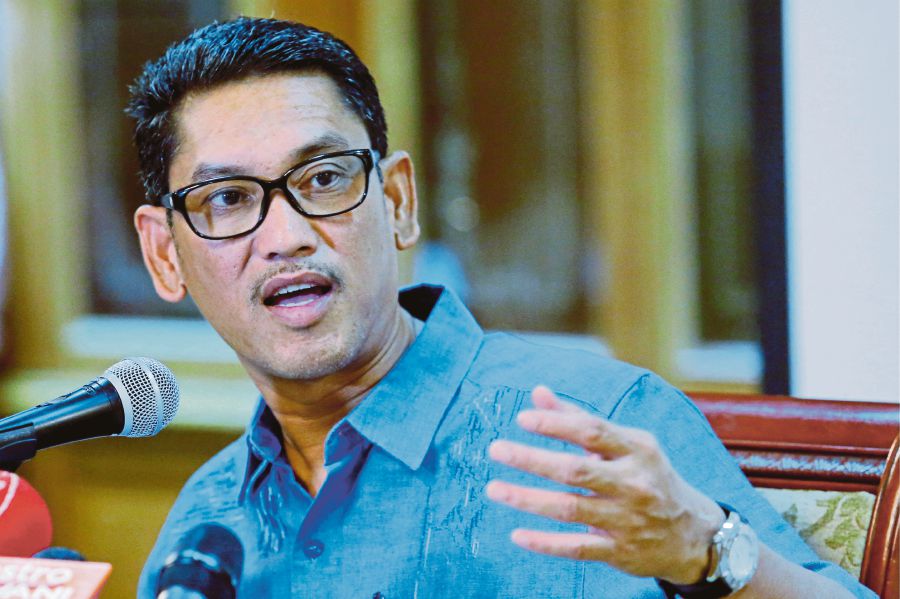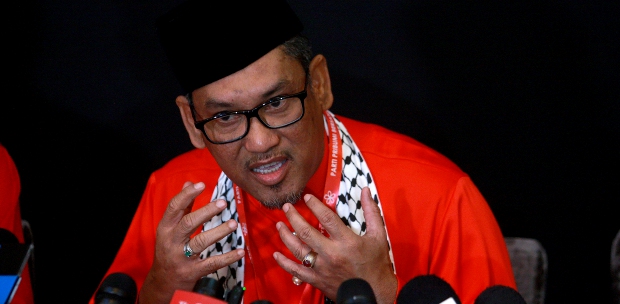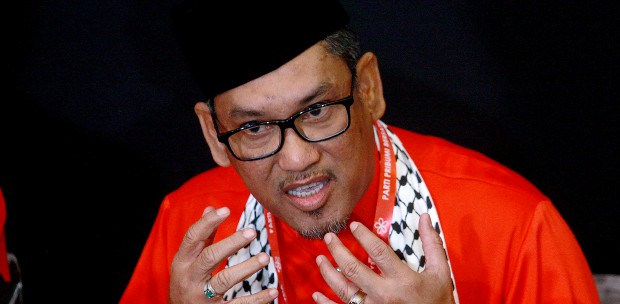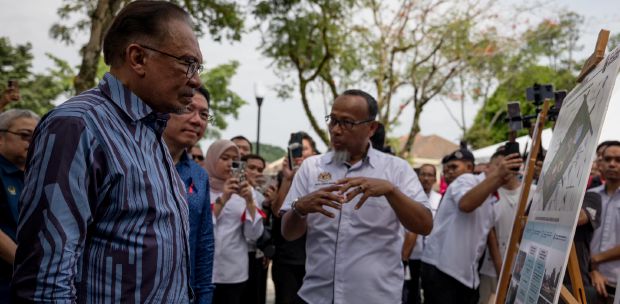Now that GE14 is done and dusted and PH approaches its 100 days in power in Perak, New Straits Times Press journalists spoke to Perak MB Ahmad Faizal Azumu, who revealed his hopes and vision for the state
Question: As we approach the 100-day mark of the Pakatan Harapan’s administration led by you, how far along has PH fulfilled its general election manifesto?
Answer: I want to clarify one misunderstanding. Perak PH did not make any 100-day pledge as what many people assumed. Instead, the coalition’s manifesto included additional pledges, which would be fulfilled by PH at the state level.
There are, however, certain pledges at the national level which are included in pledges made for the state.
I need to clarify this because many people thought that Perak PH made promises to be fulfilled within 100 days.
We are focused on fulfilling the pledges within the shortest time.
My state executive council members and I are working hard day and night to fulfil these pledges.
One fulfilled pledge was the free water supply or a move to reduce the water tariff. This involved adding value to a free water supply scheme from 20 cubic metres to 24 cubic metres.
This may seem like a small matter, but it was a commitment made by PH to the people, and efforts are being made to carry this out with cooperation from the National Water Services Commission (Span) within the short term.
We will also introduce health and food cards, which will be similar to debit cards with money deposited into them. Perak folk can use them at private clinics and to buy daily essentials. This will be given to target groups. This will facilitate the purchase of essentials, such as rice, cooking oil and sugar.
Q: As what was previously reported, the subsidy for water supply would be implemented this month, so how will this health and food card function?
A: (I think) it could be expedited. In truth, we are ready to implement it, but we are facing problems with implementing equipment and access for the card usage in villages.
How can we implement the system in sundry shops in villages? For now, the (equipment) is ready to be used in supermarkets and others. But the system has yet to reach village folk.
Our focus is on rural areas and small villages, and we need to provide the service at shops in the villages first, then only the system can be fully implemented. This will take some time, and I hope that the service will be implemented by year-end.
Q: What other pledges will be implemented this year?
A: Personally, I think the issues surrounding public housing must be resolved. So, the PH government is mulling introducing an affordable housing scheme. I announced yesterday (Thursday) that a government-linked company has signed an agreement with a private company to build houses with a floor size of 360sq m for under RM100,000.
It is not easy to do. In the past, a 225sq m house will come with a RM149,000 price tag, but now we can build a house bigger than that at a lower price with a (front) porch.
In the future, my target is to build affordable housing, which is capped at RM100,000. I see this as doable. We must work with the private sector.
The PH government is a government that is friendly with the private sector, and we can develop housing projects which prioritises affordable and low-cost housing.
Besides that, we will continue implementing Skim Bantuan Khas IPT Anak Perak (Perak Higher Education Special Aid Scheme) and the Menteri Besar Scholarship for children in the state.
The previous administration did this, but we want to increase (the number of recipients). We will do this as we must continue good policies and add value by increasing the number of recipients.
We are boosting recognition of the state opposition leader at the State Legislative Assembly by providing a special office, a vehicle with a driver and a salary allocation for an officer.
This is something new in Perak. After I took the oath as menteri besar at Istana Iskandariah, former menteri besar Datuk Seri Dr Zamby Abd Kadir and I were summoned for an audience with Sultan of Perak Sultan Nazrin Muizzuddin Shah and we agreed to upgrade the position of the state opposition leader. This was never done before in the State Legislative Assembly.
We will also table an audit report of government-linked companies’ subsidiaries at the state assembly. There are problematic GLCs. Some GLCs have not been audited since 2012, so some audit reports may not be tabled in the upcoming state assembly session.
Q: There were some “U-turns” in the implementation of manifesto pledges and certain PH policies. An example is the recent discount for water. Does this mean that the state government has problems fulfilling its promises?
A: These were not U-turns, but corrections. Previously, I announced there would be a 10 per cent discount on water bills and after I made the official announcement, many said it was not a wise move. I had to be brave enough to admit that I made a mistake, and I must say this as it is my responsibility to the people.
Imagine if we give a 10 per cent discount for the (water) bill, some will say that it is too little for the people as it will mean they will save between RM1 and RM2 and it will not encourage people to save water.
It could have caused wastage and, in turn, have grave implications of up to RM8 million incurred by the Perak Water Board.
That RM8 million could have been used to reduce non-revenue water, which would increase the revenue of the Perak Water Board. Those funds could be channelled to infrastructure projects for the people or welfare programmes.
Can you imagine the amount of subsidies that we (the state government) have to pay if discounts were given and not on the first 20 cubic metres?
We were responsible enough to review this decision as we intend to do what is best for the state and its people in the long term.
We are looking for a way to sell water to Selangor and Penang as well. I have initiated unofficial discussions with my counterparts from these two states. Perak wants to sell treated water and we are finding a suitable location to build a water treatment plant for this. Once it is built, we can treat water and sell it to Penang and Selangor. InsyaAllah. Let’s pray that this will bear results.
Q: You recently commented about the issue of recognising the Unified Examination Certificate (UEC). Can you explain the state government’s stand on this matter?
A: The state government is ready to recognise UEC, but this will depend on the Education Ministry’s stand. The state government’s stand is the same as what was mentioned in the PH manifesto. UEC holders must possess a credit in Bahasa Melayu. They must be fluent in Bahasa Melayu. Will it be fair to deny citizens who fulfil this requirement? I am dumbfounded at how this issue could become a hot topic.
The former prime minister (Datuk Seri Najib Razak) appointed a foreigner who could not speak Bahasa Melayu and was paid tens of thousands of ringgit a month as a media adviser, so why did that issue not arise back then? But now, some quarters are (making noise) about giving benefits to people who hold the UEC, even when they are Malaysians. I do not see a problem in this.
We are not talking about selling our country to outsiders. We are talking about Malaysians.
Q: How about the allocations to private Chinese, Tamil and missionary schools in Perak?
A: We will fulfil that promise. The state government has allocated RM3 million to help private Chinese secondary schools, Chinese primary schools, Tamil primary schools and missionary schools in Perak. The allocation is based on a per capita basis or the number of students. At the same time, we will continue giving aid to tahfiz schools, religious schools and others.
Q: Can you comment on the issuance of permanent land ownership titles to residents of Chinese new villages and other similar settlements, including their hopes that the assessment rates would be reviewed?
A: We understand the people’s hopes in this matter, but we need to refer it to the Federal Government as it involves the National Land Council. It is a complex issue because it is related to Article 92 of the Federal Constitution.
For the state government, what we can do is give a 99-year lease to all new settlements, not just for new villages, as it should be for all Malay and Indian settlements as well.
Many people may not know that in Malay villages, the lease is much shorter as it is 60 years, compared with the 99-year lease in new villages. The state government is committed to standardising this to a 99-year (lease) period for Malay, Chinese and Indian villages.
What is most important is our commitment to helping the people and to make sure that no one is sidelined or left feeling like a second-class citizen. If we make decisions to gain popularity, we risk destroying our future.
On reviewing the assessment rates, I can say that it should have been reviewed once every 10 years. When it is reviewed, it will drive up costs as the rate will be based on current assessment rates and this will burden the people. For everyone’s information, the assessment rates in the state have not been reviewed since 1984.
Q: Some quarters think the recent reshuffling at state GLCs were intended to take revenge on certain people. How will you change people’s perception of this issue?
A: Our stand when it comes to the GLC issue is not based on revenge, blame or any intention to sack people.
The PH government is fair and what we saw was that there were many questionable things going on in state GLCs. These included lopsided agreements involving GLCs.
Our first move was to call up GLC chief executives and give them our views. The situation turned out that no middle ground could be found and they were asked to step down from their posts. That was what happened to three GLCs — Perak Menteri Besar Inc, Perak State Development Corporation and Perak State Agricultural Corporation.
They stepped down from their posts. Some said I gave them too much leeway and did not take action.
My job is not to punish people or to give a prison sentence. No. We inherited problems of the previous administration, and we need to resolve them.
A report was lodged with the Malaysian Anti-Corruption Commission by the adviser to the Perak menteri besar, Datuk Zainol Fadzi Paharuddin, regarding the Pusat Kerjaya Amanjaya (Peka) issue.
There were many problems in GLCs, but the action we took was based on the law.






